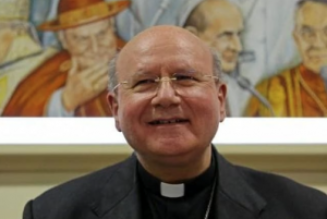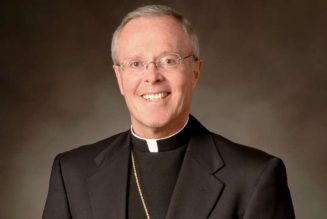By Dr. Jeff Mirus ( bio – articles – email ) | Sep 28, 2021
If you are looking for a microcosm of the modern West, try San Marino. It’s a tiny, land-locked nation just west of the port city of Rimini, Italy on the Adriatic Sea. Its population of just under 35,000 inhabits an area of 24 square miles. Based on GDP per capita, San Marino is one of the wealthiest nations in the world. This same population is also 91% Catholic. Yet San Marino has just legalized abortion, not through a political trick but through a public referendum.
While San Marino did lag over forty years behind Italy in getting on the abortion train, its bid to “catch up” illustrates very clearly the failure of the Catholic Church in this era of Western civilization’s spiral into paganism. A key feature of this illustration is the ease with which people can self-identify as Catholics while voting to legalize the murder of unborn children.
Perhaps we need a reminder that this question of legalization is quite different from the problem of how those who are complicit in abortion are to be punished. Criminal penalties in Christian nations have typically been far more severe for doctors who perform abortions, for example, than for women who—under one form of duress or another—choose to abort. But decriminalization is quite another matter—approved in this case by an overwhelming 77% of those voting in the referendum for the first twelve weeks of pregnancy, and even beyond that if there is a risk to maternal physical or psychological health or a presence of fetal abnormalities.
Thus was abortion legalized despite the protestations of both the currently ruling Christian Democratic Party and the Church herself. Now, outside the Vatican City State, the only place in Europe where abortion is prohibited is the 122-square-mile area of the island of Malta.
Welcome, then, to the modern irrelevance of the Catholic Church, especially among her own members.
A lack of consequences
The immense problem the Church faces today is not that abortion and many other grave evils have been gradually legalized and even directly fostered by governments throughout the West, but that all the Catholics who approve of such things are still permitted to self-identify as Catholics. What the Church has succeeded in ensuring over the past two or three generations is that people can claim to be Catholic no matter what they believe and no matter how vigorously they oppose the Church’s moral teachings.
This is also obvious in the frequency with which we still see Catholic professors, religious, priests and even bishops trying to regain moral authority by piggy-backing on prudential causes which the dominant secular culture approves (like bureaucratic programs for the poor or the ill or the planet, the political time for which has so clearly come) while either remaining silent on absolute moral issues or even supporting “for other reasons” politicians who deliberately implement policies which are not only intrinsically immoral but viciously murderous. This of course varies somewhat from diocese to diocese throughout the West. But the one factor that is all but perfectly consistent is the near-total lack of consequences for both clergy and laity who publicly oppose the Church’s absolute moral teachings, especially when it comes not only to political permission but also to political support for grave intrinsic evils.
I have repeatedly suggested that the Church cannot get stronger until she is willing to actively risk making herself weaker. She must prune the ecclesiastical vine to increase its strength. No, worse: She must cut off massive amounts of dead wood simply so that others can look at her and tell that she is still alive!
I emphasize at once that this involves no draconian harshness, for the Church must always welcome back repentant sinners. She will always welcome back any for whom her exclusionary discipline bears the fruit of repentance. But the widespread habit of publicly opposing Catholic faith and morals while remaining, also publicly, a Catholic in good standing must be brought to a speedy and decisive end.
Amen, I say unto you
We are at a stage in the health of the Church in which amputation of limbs and cauterization of open wounds must be basic survival tactics. That it is taking so long and requiring so much debate among the bishops of the West to recognize what is essential to basic survival is simply more evidence of how far the infection has spread. Large organizations seething with conflicts over mission are, in effect, riddled with disease; there is no health and no strength without moral unity. A Church even one tenth its current size, if actually united in the Faith, would far better fulfill both Our Lord’s desires and His very words:
Truly, I say to you, there is no one who has left house or brothers or sisters or mother or father or children or lands, for my sake and for the gospel, who will not receive a hundredfold now in this time, houses and brothers and sisters and mothers and children and lands, with persecutions, and in the age to come eternal life. But many that are first will be last, and the last first. [Mk 10:29-30]
Finally, after Our Lord healed the lepers, he asked a question that can be asked again of all the baptized in San Marino, or in Rome, or in our own churches—or even perhaps inside our own heads. It is very likely the most serious question of all, as recounted by St. Luke in the seventeenth chapter of his gospel:
“Were not ten cleansed? Where are the nine?”
Sound Off! CatholicCulture.org supporters weigh in.
All comments are moderated. To lighten our editing burden, only current donors are allowed to Sound Off. If you are a current donor, log in to see the comment form; otherwise please support our work, and Sound Off!

There are no comments yet for this item.
Join Our Telegram Group : Salvation & Prosperity










